









• On May 8, 2025, President Donald Trump and UK Prime Minister Keir Starmer announced a landmark U.S.-UK trade agreement enhancing bilateral economic cooperation.
• This deal eliminates numerous non-tariff barriers in the UK that previously limited U.S. access, especially in agriculture and chemicals, unlocking an estimated $5 billion in new export opportunities.
•
• It includes significant market openings for American beef, ethanol, and pharmaceutical products, and provides preferential access to UK aerospace components for U.S. manufacturers.
• Additionally, it establishes streamlined customs procedures and high-standard commitments in labor, environment, and intellectual property.
Despite this progress, the U.S. retains a 10% tariff on UK goods, with auto imports beyond 100,000 vehicles annually facing a 25% rate.
• Discussions continue regarding Section 232 tariffs on steel and aluminum, though both countries aim to form a new trade union in these sectors.
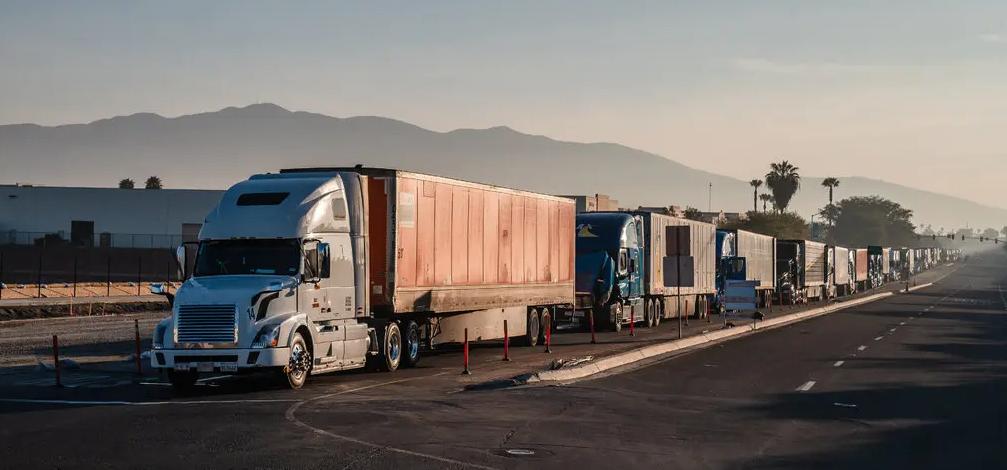
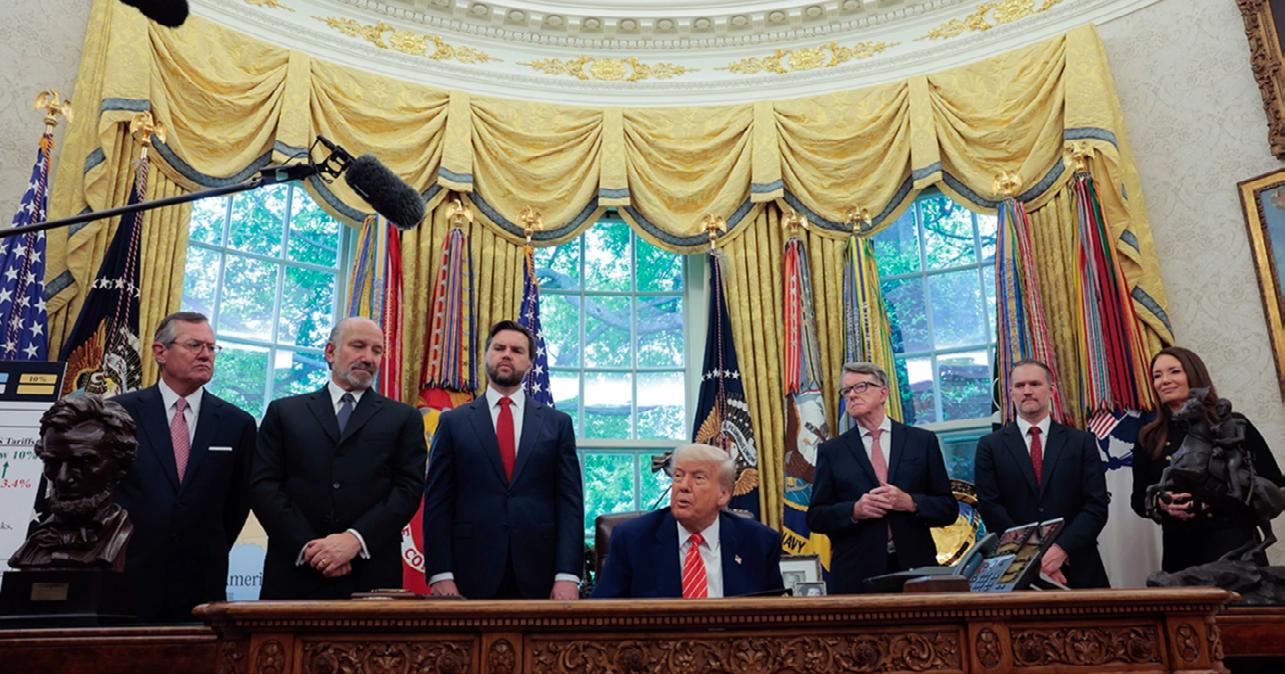
• This historic agreement could risk sidelining Mexico if similar access and modernized terms are not pursued within the USMCA framework.
• The U.S.-UK deal signals a shift toward bilateralism and reciprocal trade standards, potentially weakening multilateral accords where Mexico relies on collective leverage.
• U.S. exporters now enjoy broader access in the UK, while Mexican goods still face EU and UK restrictions post-Brexit.
• If Mexico does not renegotiate parts of the USMCA or diversify its trade strategies, it may lose competitiveness, particularly in agricultural and automotive sectors.
• Furthermore, with the U.S. focusing on securing supply chains and high-standard commitments, Mexico must align its labor and environmental policies to remain a priority partner.
SOURCE: NY TIMES
• INITIATIVE WITH A DRAFT DECREE TO REFORM AND ADD VARIOUS PROVISIONS TO THE POLITICAL CONSTITUTION OF THE UNITED MEXICAN STATES IN MATTERS OF EARLY CHILDHOOD, HEALTH, POSITIVE PARENTING, MATERNITY, WORK LEAVE, CULTURAL RIGHTS, SCHOOL GARDENS, AND FOOD SECURITY FOR CHILDREN AND ADOLESCENTS
Presented by: The Parliamentary Group of Movimiento Ciudadano
Objective: To establish that the Federation and federal entities, in coordination within their respective competencies, must implement public policies to ensure that children and adolescents in vulnerable social situations receive complete, balanced, adequate, varied, and sufficient nutrition in educational centers. The initiative emphasizes the principle of the best interests of children, ensuring the full guarantee of their rights, with a focus on maternal and child health, medical attention during pregnancy and early childhood, and prevention measures..
Status: 2025-05-07 - Published in the Parliamentary Gazette
• INITIATIVE WITH A DRAFT DECREE TO REFORM THE GENERAL LAW TO PREVENT, PUNISH, AND ERADICATE CRIMES IN MATTERS OF HUMAN TRAFFICKING AND THE PROTECTION AND ASSISTANCE OF VICTIMS OF THESE CRIMES
Presented by: Rep. Mariana Benítez Tiburcio (Plur - MORENA) (See actor profile)
Objective: To establish that labor exploitation occurs when, through coercion, threats, physical or moral violence, deception, or temporary deprivation of liberty, a person obtains an unjustifiable benefit, economically or otherwise, through the work of another, subjecting the individual to practices that violate their dignity.
Status: 2025-05-07 - Published in the Parliamentary Gazette

On May 14, 2025, Mexico’s Ministry of Economy announced that a proposal was made during the Semiconductor Cooperation Forum to include a dedicated semiconductor chapter in the USMCA. This initiative aligns with U.S. efforts to strengthen domestic semiconductor production and reduce reliance on Asian imports, positioning Mexico as a strategic partner in the supply chain. The proposal supports Mexico’s 2024–2030 Semiconductor Industry Master Plan, which aims to double the sector’s size by the end of the current administration. Led by Economy Secretary Marcelo Ebrard, the plan has gained traction through bilateral collaboration within the U.S.-Mexico Semiconductor Collaboration Forum, which includes government officials, major companies, industry associations, and academics from both countries.
SOURCE: MEXICO NOW


Gabriel Padilla, director of Mexico’s National Auto Parts Industry (INA), reported that 92% of auto parts produced in Mexico comply with USMCA rules, making them tariff-exempt for U.S. exports, while the remaining 8% face average tariffs of 27%. Despite a 10.5% drop in production in early 2025, the industry expects recovery driven by increased U.S. auto sales. Challenges include boosting regional integration, developing local suppliers, and reducing reliance on single sources. To stay competitive, the industry is investing in innovation, automation, and proactive strategies to adapt to evolving trade regulations.
SOURCE: MEXICO NOW


Business leaders and Baja California state officials have agreed to form joint working groups to address economic development through three main initiatives: preserving and refining the FIDEM trust framework, enhancing the state’s competitiveness, and exploring potential adjustments to the payroll tax to support formal employment and ease the fiscal burden on companies. This collaboration underscores a shared commitment to dialogue and coordinated action for the region’s social and economic progress.
SOURCE: INDUSTRIAL NEWS BC
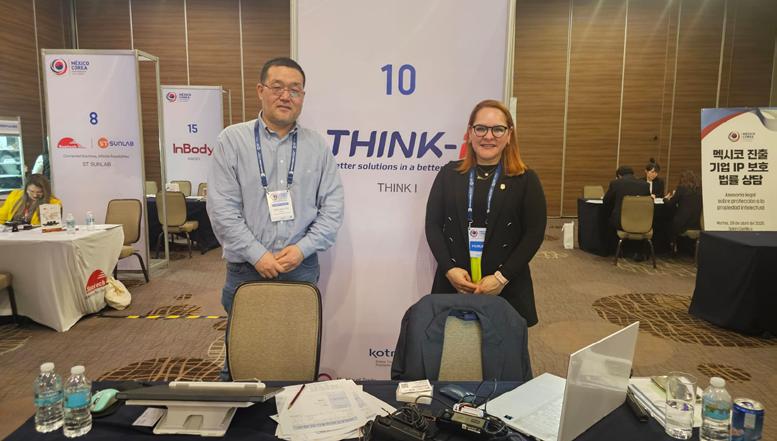
Baja California aims to enhance trade relations with South Korea by participating in the “Mexico-Korea Partnership Plus Week” in Mexico City, where state representatives engaged with Korean officials and Mexican economic leaders to explore investment opportunities in sectors like electricity, advanced manufacturing, and IT. The event showcased Baja California’s appeal as an investment hub and highlighted the state’s strategies in talent development and supplier integration to boost industrial competitiveness amid nearshoring trends. South Korea, already Baja California’s fifth-largest foreign investor, contributed US$124.6 million in 2024, representing 5% of total FDI.
SOURCE: MEXICO NOW

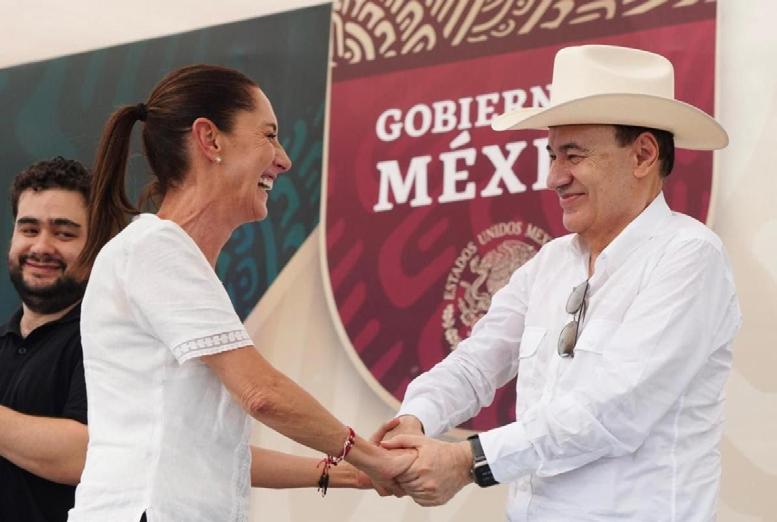

The Government of Sonora, led by Governor Alfonso Durazo, held meetings with President Claudia Sheinbaum and executives from Foxconn to explore investment opportunities in electromobility and advanced technology, including the potential establishment of an electric vehicle plant in the state. A working group involving federal and state authorities, along with Taiwanese business leaders, was formed to evaluate strategic projects aligned with the Sonora Sustainable Energy Plan, which aims to attract high-tech and clean energy investments. Foxconn’s involvement signifies growing international interest in Sonora’s efforts to become a hub for innovation and sustainability, with strong backing from the federal government and public-private collaboration.
SOURCE: MEXICO NOW


CHIHUAHUA
During a visit to Austin, Texas, Chihuahua Governor Maria Eugenia Campos met with business and academic leaders to deepen economic and educational ties between Chihuahua and Texas. Discussions with the Texas Association of Business focused on boosting the internationalization of Chihuahua’s companies, attracting investment, and supporting high-potential industries in the border region. TAB CEO Glenn Hamer praised Chihuahua’s progress in security and investment climate, signaling support for further collaboration. The governor also met with the University of Texas at Austin to explore partnerships in research, continuing education, and emerging technologies such as semiconductors, AI, and electromobility, alongside initiatives in English education and automation labs.
SOURCE: MEXICO NOW



The CEOs of Harlingen Economic Development Corporation (EDC) and Greater Brownsville Incentives Corporation (GBIC) visited Monterrey, Nuevo León, to promote investment opportunities in Harlingen and Brownsville, Texas, as part of Cameron County’s commercial mission. At the “Cross-Border Industrial Investment Opportunities” event, they discussed key topics such as relocation, industrial real estate, and fostering a binational strategy for regional industrial growth. The panel, which also included Cameron County EDC Director Ramiro Alemán and Brownsville Mayor John Cowen, highlighted the competitive advantages and incentives available to businesses in Cameron County. The mission aims to attract capital, generate jobs, and strengthen a binational economic platform that capitalizes on the region’s proximity, infrastructure, and industrial dynamics.
SOURCE: MEXICO INDUSTRY
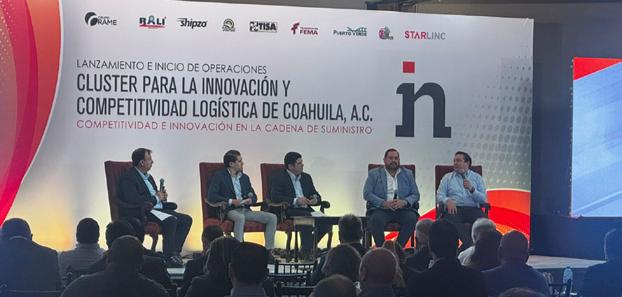

Coahuila inaugurated its new Cluster for Innovation and Logistics Competitiveness to boost supply chain efficiency, leveraging its 9,000 km of roads and strategic location with over 350,000 cargo vehicles moving monthly for 31,000 northeastern companies. Cluster leaders emphasized collaboration and infrastructure development to address regional challenges, including congestion at border crossings like Nuevo Laredo. Saltillo will host the 2026 World Forum of Cities and Logistics Platforms, reflecting the state’s growing importance. Key companies and experts highlighted Coahuila’s competitive advantages, such as security and efficient border crossing in Piedras Negras, where a new customs bridge is planned. The project, expected to handle up to 8,000 vehicles daily within 15 years, aims to support national logistics and strengthen trade with Texas, whose combined economy with Mexico would rank fifth globally.
SOURCE: MEXICO INDUSTRY


The Guanajuato Automotive Cluster (Claugto) and the Mexican Association of Industrial Suppliers (Apimex) have signed a strategic collaboration agreement to strengthen the automotive supply chain in Guanajuato, focusing on supporting small and medium-sized enterprises (SMEs). This alliance aims to enhance business opportunities, knowledge transfer, innovation, and professionalization within the sector. Fernando Padilla, president of Apimex, emphasized that the collaboration will increase national content in the automotive value chain, contributing to Mexico’s industrial plan. The agreement was formalized at the Automotive Supply Forum, a key event in Latin America, and is expected to help integrate local SMEs into the global automotive market. The partnership aims to foster a more competitive, interconnected ecosystem that boosts the industry’s growth, with over 90% of exhibition space for the upcoming forum already sold, reflecting strong industry confidence.
SOURCE: EL SOL DE LEON

San Luis Potosí is set to develop a new industrial zone in the municipality of Rioverde, located in the state’s Central Zone, as part of the federal “Polos de Desarrollo para el Bienestar” (Podecobi) program. The zone will span over 30 hectares, offering basic infrastructure, railway connectivity, and a focus on agroindustry. Additionally, a 50-hectare industrial area in Ciudad Valles, part of the Huasteca Potosina region, will be rehabilitated to boost its productivity and generate jobs, as it currently operates at only 20% capacity. These projects, expected to create over 800 direct jobs each, align with federal criteria such as legal certainty, access to services, educational partnerships, regional impact, and environmental sustainability. The industrial zones are positioned to attract investment and benefit from fiscal incentives like full deductions on new assets and additional deductions for training and innovation expenses.
SOURCE: MEXICO INDUSTRY

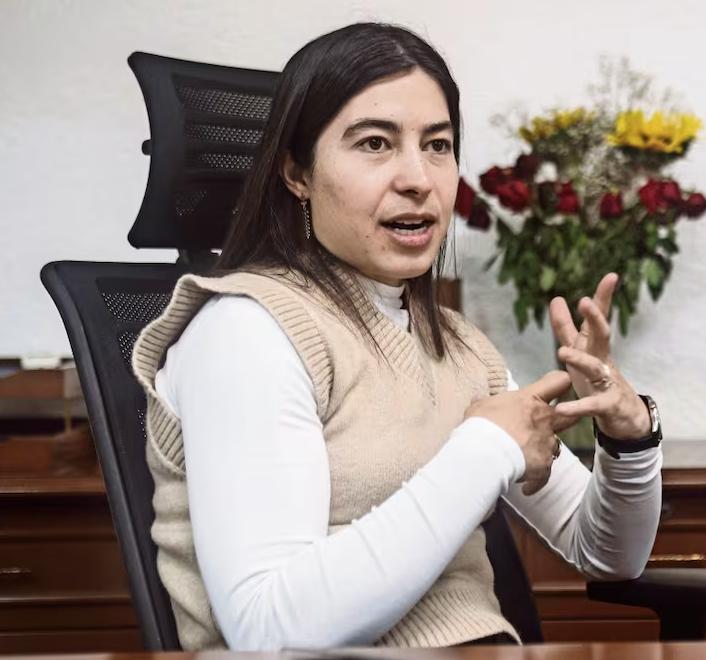

On May 8, 2025, Mexico City’s Ministry of Economic Development (Sedeco) invited Italy’s manufacturing, pharmaceutical, and technology sectors to invest in the capital. Sedeco emphasized Mexico City’s competitive advantages, including its skilled labor force, safety, accessibility, and close proximity to federal agencies. Manola Zabalza, head of Sedeco, encouraged Italian companies to consider relocating their headquarters to the city while maintaining production facilities elsewhere. The agency also offered advisory support for identifying strategic partners, locations, and investment processes. Mexico City’s strong infrastructure, economic and political significance, and appeal as a consumer market were highlighted as further incentives. Additionally, the local Investment Attraction Agency noted a positive investment outlook and emphasized the city’s connectivity to Europe. Trade data revealed that Mexico City exports $160 million to Italy annually, compared to $3.77 billion in imports, indicating a dynamic but imbalanced relationship with room for growth. The initiative aims to strengthen economic ties between both regions.
SOURCE: EL UNIVERSAL
The arrival of new companies like SKF and Volvo, along with ABB’s recent $50 million expansion—which includes new offices in Monterrey and the creation of 120 jobs—continues to position the region as a leading industrial and technology hub in Mexico.
Safran Group has inaugurated its sixth facility in Chihuahua, investing USD 7 million in the Supra Industrial Park. The new plant is projected to create 229 direct jobs and 64 indirect jobs over the next 18 months, supporting key service areas such as security, catering, and logistics.
Japanese company NHK Spring has announced a USD 55 million investment to build a new plant in Irapuato, Guanajuato, expected to generate 233 new jobs. Specializing in suspension springs and electric motor cores, the company already operates a facility in Irapuato, established in 2014 and expanded in 2017.
Japanese auto parts supplier SK TEC has announced a USD 19.8 million expansion in the state of Guanajuato. The investment will generate 80 new direct jobs, further strengthening the region’s automotive manufacturing base.
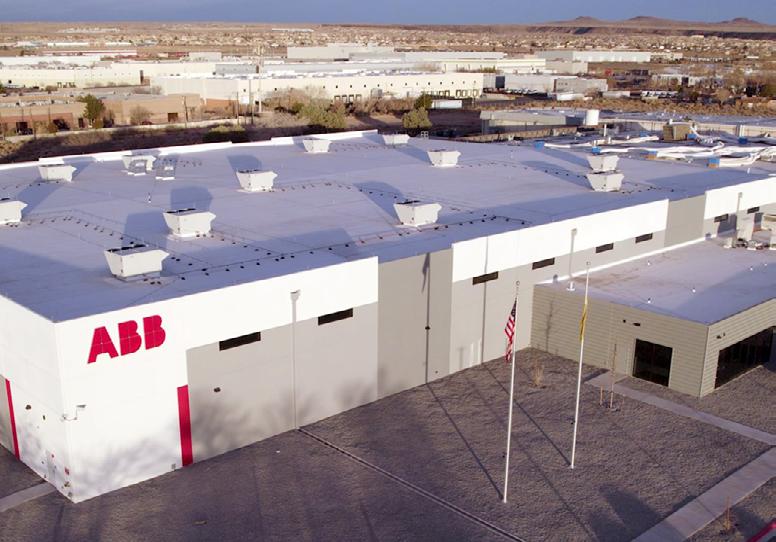
Japanese company Senyo has announced a USD 20 million investment to build a new plant in Abasolo, Guanajuato. The project will create 70 direct jobs and will feature advanced technologies, including CNC lathes and automated inspection systems.
ODATA, subsidary of Aligned Data Centers focused operating data centers, announced the launch of the first facility within its DC QR03 campus—its largest development in Mexico to date. Located in the PyME Industrial Park in Querétaro, the new campus represents a total investment of over $3 billion and will provide up to 300 MW of IT capacity once fully built.
SOURCES: EL ECONOMISTA, CLUSTER INDUSTRIAL, MEXICO INDUSTRY

THE SCENES: A DAY IN THE LIFE
In this behind-the-scenes spotlight, Prodensa’s Brenda Borrego Medrano shares what it’s really like to manage shelter operations for international manufacturers in Mexico. As Shelter Operations Manager, her day is filled with problem-solving, coordination across multiple departments, and acting as a bridge between clients and local teams. From morning site visits to late-day compliance checks, her role is essential to ensuring clients operate smoothly and stay focused on production. This blog offers a human look at the complex, fast-paced world of shelter services and the people who make it all run seamlessly.
In a recent panel at the Wilson Center, former Bank of Canada and Bank of England Governor Mark Carney discussed the future of North American trade under the USMCA. The conversation explored how stronger integration, investment in renewable energy, and supply chain coordination could position North America as the world’s most competitive region. However, Carney also warned of significant challenges—from rising protectionism to the need for unified industrial strategies. This blog captures key insights from the event and reflects on what they mean for manufacturers and policymakers across the region.